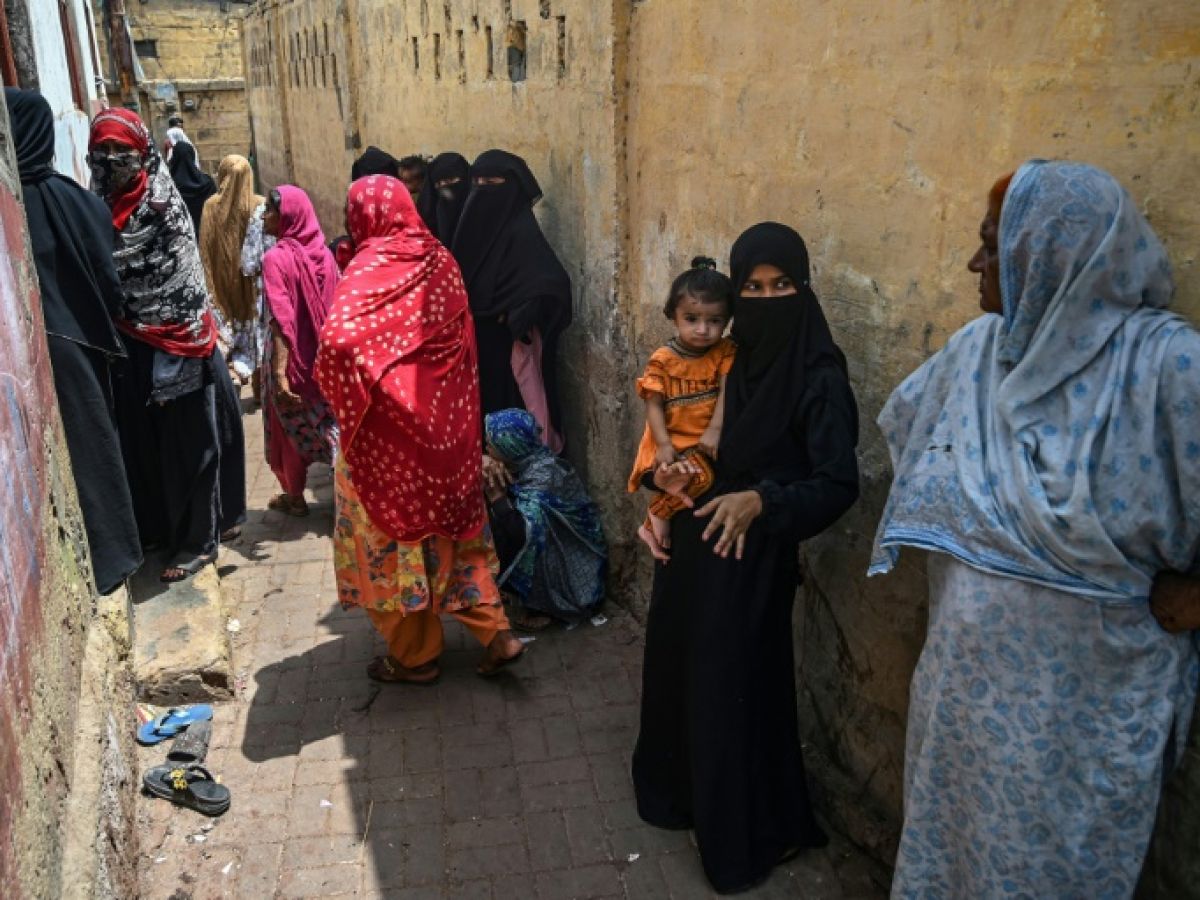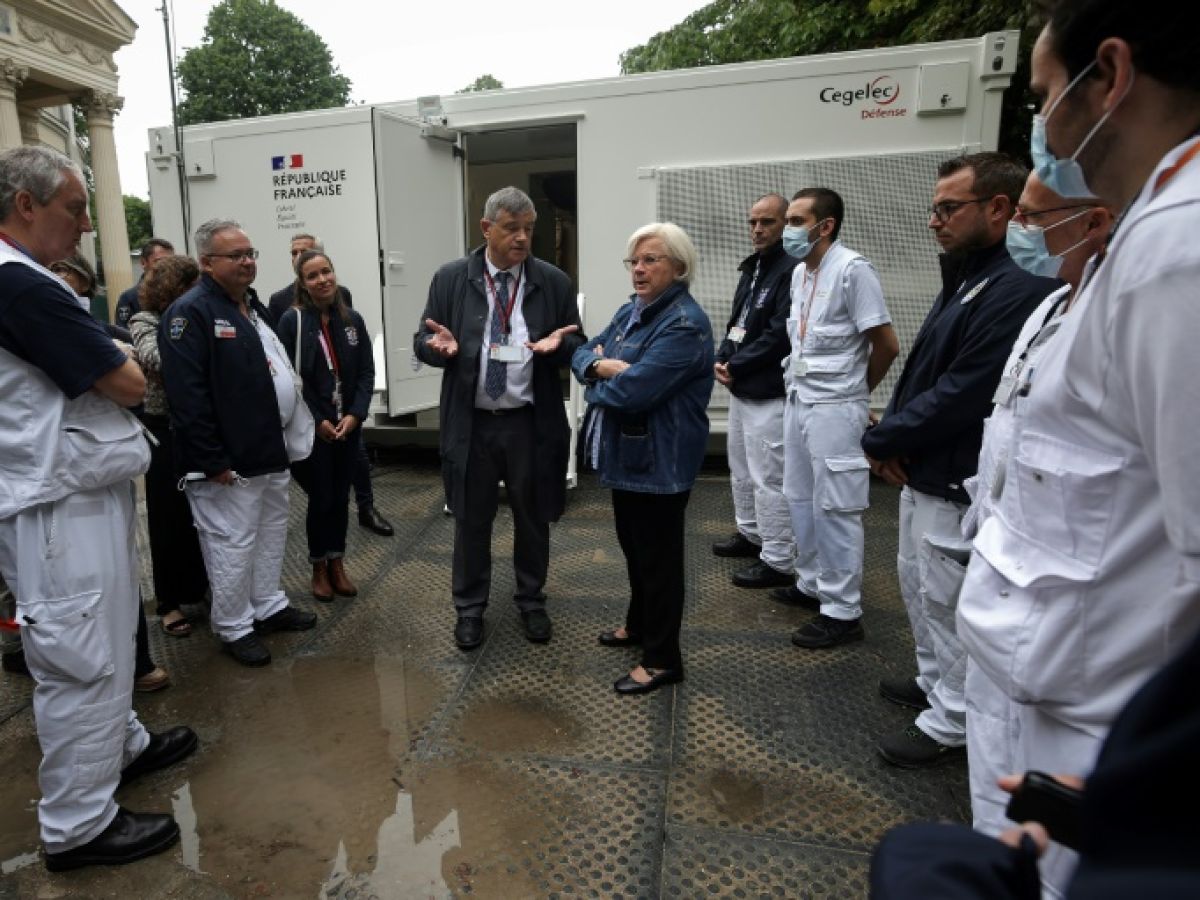On one of the most densely populated islands in the world, off the coast of Pakistan, a group of pregnant women wait under a scorching sun for the only midwife who comes from Karachi, the country's largest city, on the other shore.
Once a week, Neha Mankani, 38, disembarks with her ambulance boat on Baba, a fishing island with nearly 7,000 inhabitants over a fifth of a square kilometer.
Before she launched her clinic on the island in 2015, then, last year, her free maritime transport service, pregnant women and their children often waited a long time on the coast, at the mercy of increasingly heatwaves. longer and more frequent in Pakistan and flooding, common during the monsoon.
Today, it is Zainab Bibi, 26, who comes for consultation. She is again after a miscarriage at six months, on a heatwave day last summer on her island at the mercy of the heat and the rising waters.

“It was very hot and I felt bad, my blood pressure suddenly dropped,” she remembers.
After waiting hours for a boat, “when I gave birth in the hospital, my daughter was already dead,” she told AFP.
In Pakistan, one of the countries most vulnerable to climate change, this year the thermometer has already climbed to 53 degrees.
– Risks multiplied by the heatwave –
In the summer, “we see more babies born prematurely or stunted in utero and miscarriages,” reports Ms. Mankani.

“Pregnant women or women who have just given birth and newborns are much more affected by climate change.”
An expert review in the British Journal of Obstetrics and Gynaecology confirmed this last year: the risk of stillborn babies is higher when women are exposed over a long period of time to temperatures higher than 90% seasonal norms.
Already in normal times, the publication points out, a pregnant woman's body undergoes changes that reduce its ability to regulate its temperature – just like children.
Pakistan deplores 154 maternal deaths per 100,000 live births, a high rate due, according to the UN, to lack of access to care in rural areas, lack of information for mothers who are often very young and poverty.
And on Baba Island and the four other islets that border Karachi, the challenges are even greater.
Ms. Mankani began her career 16 years ago at Karachi Hospital. She regularly saw women arriving there with complications from these small pieces of land in the middle of the Arabian Sea.

So, in 2015, she launched the “Baby Mama” fund, to set up the first dispensaries for mothers and children. Then, in 2023, its free boat.
A deliverance for Sabira Rachid who, at 26, has three children – after having lost two other infants, one of whom, she says, due to failure to find a boat to take him to the hospital in time.
Her last child, a daughter she called Eesha, she assures, is alive “thanks to Neha’s clinic”.
– Poverty and isolation –
On these deprived islands – off the coast of a country where residents live below the poverty line – girls are often married off at 16 by families impoverished by water pollution which has reduced fishing. .

“Many of these young girls do not know how to take care of themselves even though they often fall ill because of water pollution,” testifies Chahida Sumaar, a 45-year-old caregiver at Ms. Mankani's dispensary.
Wiping the sweat from her forehead with her long scarf, she urges young mothers to drink plenty of water, wash their breasts before breastfeeding or teaches them how to swaddle their newborns in a clean, dry towel to combat the humid heat .
Vital advice in homes without running water, often without electricity, where women cook over a fire in small, unventilated rooms.
Ayesha Mansour, 30 years old and four children, only has four to five hours of power a day in her two-room apartment at the end of a path of plastic bags, often covered by rising water.

“Those who have solar panels cope better with the heat, but we can't afford them,” she says, shooing flies around her youngest child's face.
“In June or July, the heat is unbearable,” says Mariam Aboubakr, an 18-year-old caregiver.
Going to Karachi in these conditions, “it’s too far,” continues this native of the island who hopes to one day become Baba’s first full-time midwife.


